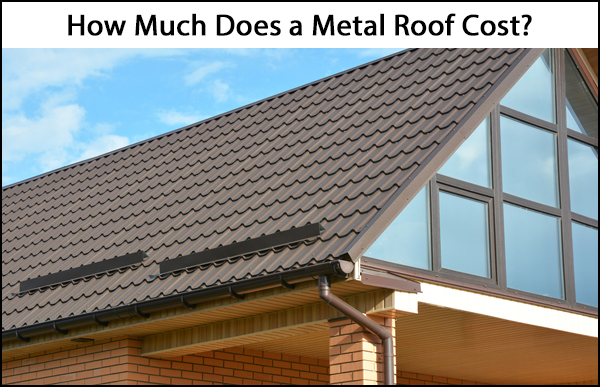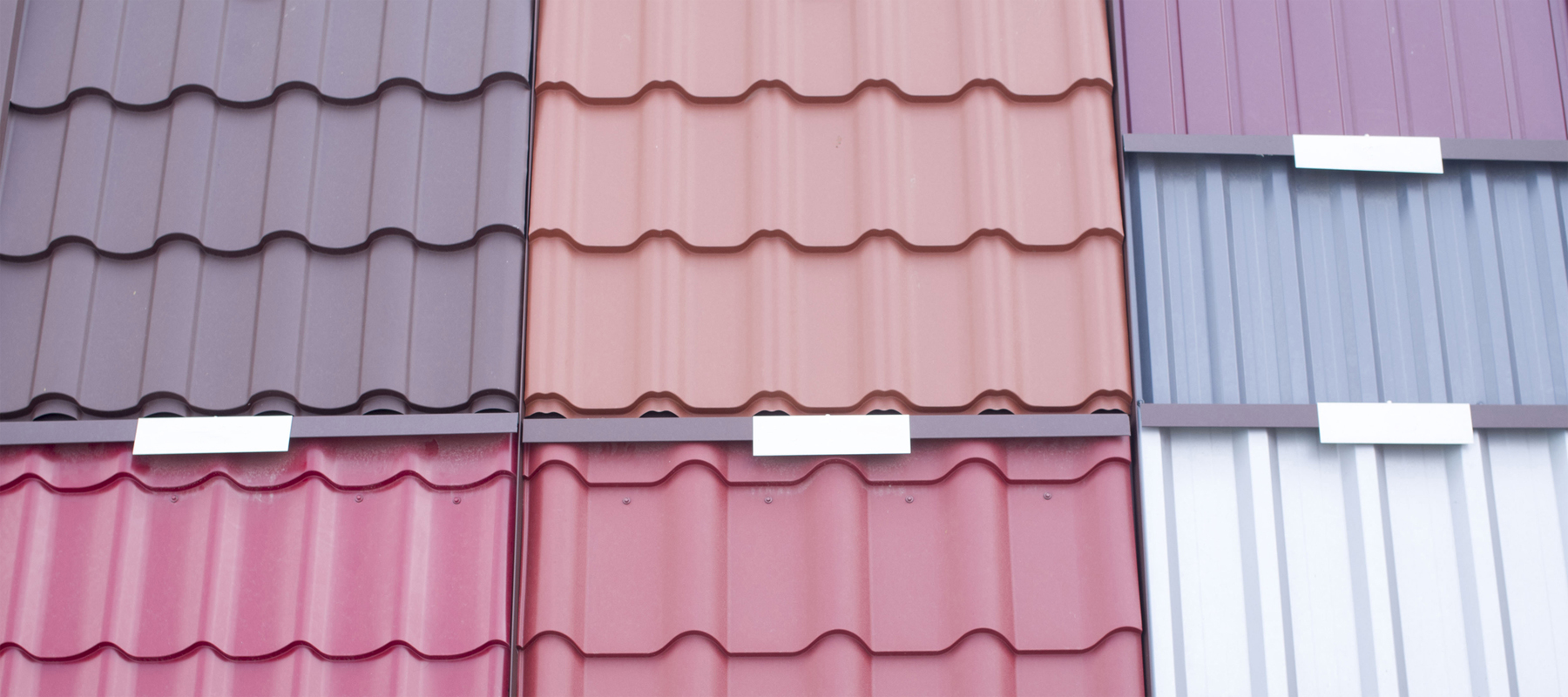How Much Does a Metal Roof Cost?
Last Updated: June 19, 2022

Fact Checked By: Ryan Maguire
On This Page
Metal roofing, popular in the early 20th century, saw its market share dwindle with the introduction of cheaper materials such as asphalt shingles. In recent years, however, metal roofs have experienced resurgence in popularity as homeowners have begun to come around to the fact that metal is a superior building material. To learn more about metal roofing and metal roof costs, continue reading this buying guide.
Summary: Metal Roofing Average Costs #
- Metal roofs cost anywhere from $5 per square foot to $20 per square foot or more (or $7,500 to $30,000 for a 1,500 square foot roof).
- Aluminum roofing costs $6 to $12 per square foot ($9,000 to $18,000).
- Steel roofing costs $5 to $10 per square foot ($7,500 to $15,000).
- Zinc roofing costs $10 to $15 per square foot ($15,000 to $22,500).
- Copper roofing costs $15 to $20 per square foot ($22,500 to $30,000).
- Although metal roofing can usually be installed directly over an existing surface, if it's necessary to remove and dispose of the old roof, this could add an additional $1 to $4 per square foot ($1,500 to $6,000) to the total metal roofing cost.
The actual cost of a metal roof may vary depending on the materials used, your location, the complexity of the installation (i.e. a steep roof or tall home), and other factors.

Average Metal Roof Installation Prices By Location: #
| City or State | Zip Code | Average Price Paid |
|---|---|---|
| Spokane, WA | 99205 | $6,850 |
| Worcester, MA | 01604 | $18,320 |
| Syracuse, NY | 13210 | $6,562 |
| Albany, NY | 12208 | $6,233 |
| Philadelphia, PA | 19019 | $9,496 |
| Boise, ID | 83709 | $15,848 |
| Grand Rapids, MI | 49504 | $15,497 |
Types of Metal Roofs #
When choosing a metal roof, consider the following options:
- Materials: Steel and aluminum are the most common metal roofing materials, but copper and zinc are also popular. Aluminum tends to cost more than steel, but steel roofing that is coated for improved corrosion-resistance costs about the same as aluminum. Zinc and copper are the most expensive materials.
- Style and Finish: After deciding on a material for your metal roof, it's time to think about the style and finish. Metal roofing can be made to look like other materials, including asphalt shingles, cedar shakes, clay tiles, and slate. You can also opt for the sleek, minimalist look of vertical metal roof panels available in a variety of colors. If you choose one of these "standing seam" roofs consider whether you want a concealed fastener system, which generally costs more, or an exposed fastener system.
Pros and Cons of Metal Roofing Installation #
The Benefits of Metal Roofing
Metal roof installation costs approximately three times as much as new asphalt shingles, but metal is a much better overall value for reasons that include the following:
- Lifespan: Virtually maintenance free metal roofing typically comes with a warranty of 30 to 50 years and many last as long as 75 years or more.
- Protection: When it comes to withstanding the elements, whether strong winds, rain, snow, insects, or fire, strong, durable metal roofing is up to the challenge.
- Savings: To properly evaluate metal roofing prices, it's necessary to look at more than just the initial investment. The reflective qualities of metal allow it to deflect sunlight and save you up to 40% on your cooling costs compared to asphalt shingles. And unlike asphalt, which needs to be repaired and eventually replaced, metal should last for the life of your home without upkeep. A metal roof can also add value to your home and in some areas, reduce your homeowner's insurance.
- Earthy-Friendly: Metal roofing is considered a green building material due to its energy efficiency, recyclability, and durability.
The Drawbacks of Metal Roofing
There are, of course, a few drawbacks to installing a metal roof, with the biggest being initial costs. While you likely won't need to replace it for 40 years or even up to 70 years, metal roofs are priced similar to other premium roofing materials. Of course, if you plan to be in the home for a long time, a metal roof is worth the cost.
Another worry is damage to softer metals, such as copper and aluminum, which may dent in severe hail. You also have to be very careful about installation, since most issues occur due to improper installation techniques. Make sure the contractor you choose is experienced in metal roof installation.
Are Metal Roofs Loud? #
If noise is your only remaining concern, we have great news. A properly-installed metal roof is no noisier than one made with asphalt shingles, ceramic barrel tiles, or any other material.
If you thought a metal roof would be louder than standard roofing material, you aren't alone. Some of the misconception is due to the average American's experience with metal roofs on barns, sheds, and other agricultural buildings. Or, perhaps you've been in an old building with a metal roof, one installed with outdated methods. In these instances, metal roofs are noisy when it rains. That's because the sheets of metal were installed directly over the rafters or roofing surface.
Today's metal roofs include a layer of sheathing between the metal and the roofing surface. Rain, hail, blowing debris - whatever strikes a metal roof sounds no louder than it would striking asphalt shingles.
Proper Installation Is The Key To Quiet #
Following best practices is the key to enjoying a low-noise metal roof. Proper fasteners, underlayment, and type of metal all play a role.
- Roof fasteners: Inclement weather often causes roofing materials to shift and move, especially if they weren't fastened properly. Proper installation requires using the right number of fasteners as well as correct placement and spacing.
- Roof underlayment: Also known as sheathing, the underlayment lies between the roofing surface and the metal sheets or tiles. Common underlayment materials include asphalt-infused felt, nylon filament mats, rubberized asphalt sheets, and foam insulating panels. Without the underlayment, your roof will likely be as loud as you feared.
- Metal type: Generally, this refers to corrugated versus flat metals and how stiff the material is. Flat or standing seam metals are much quieter than corrugated options are. Also, as a general rule, higher gauge metals are better at reducing noise. This becomes especially important with a high profile roof.
Finally, you can help deaden the sound from any type of roof with increased ceiling insulation. The two most popular options are spray foam insulation and rigid foam insulation. This creates a physical barrier between the living space and the roof, absorbing much of the sound.
Additional Considerations #
Materials, pricing, and style are all important factors to think about when looking to buy a metal roof, but they should never be your only consideration. It is crucial to be sure that the contractor is qualified to install the metal roofing according to the manufacturer's specifications. This may seem like a no-brainer, but metal roofing is a quickly growing industry, and it is not guaranteed that everyone on the supply and installation side of the business is as informed as they should be. A metal roof is a considerable investment in your home; don't risk any problems that may come from an inexperienced or unqualified installer.
Don't be afraid to obtain quotes from multiple dealers and installers. It is important to investigate every material that you are considering to be sure that you have picked the right style and type of metal for your area. See what other installations and jobs the contractors you are considering have done. If possible, talk to previous customers to get an idea of their performance and qualifications. And if at any point a seller or contractor is unwilling to share this information with you, find another one. A reputable business will gladly provide this information.
It may seem as if this is unnecessary or overkill, but your roof is a major fixture of your home and a large investment. You need to be sure that you have the best possible materials installed by the most qualified person.
Resources:
